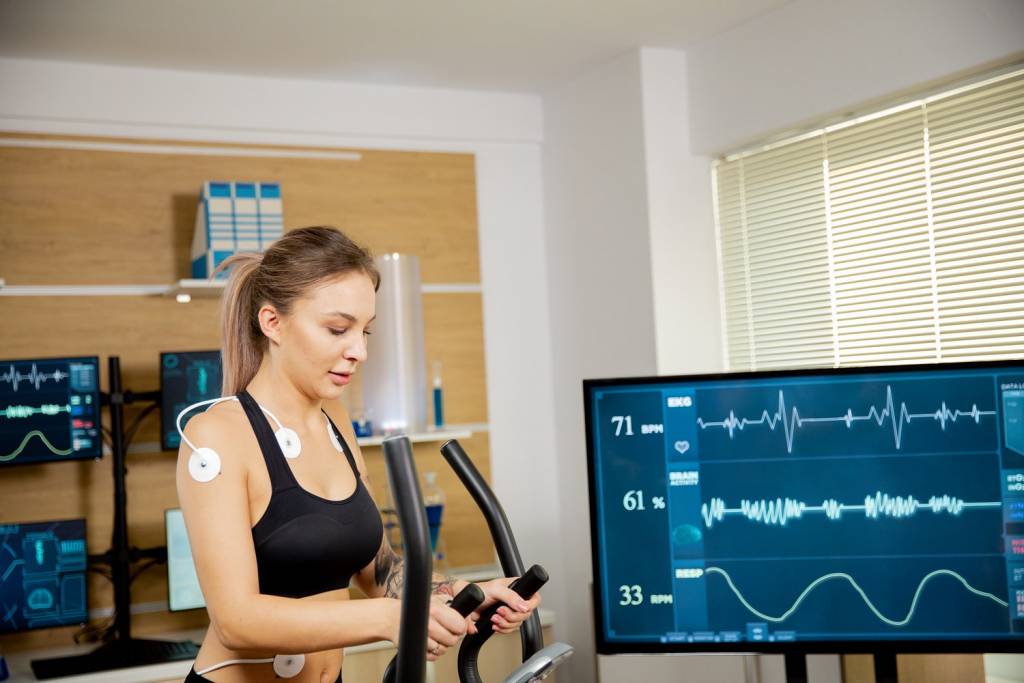TMT / Tress Test

Why do I need an Exercise Stress Test?
An exercise stress test helps your doctor find out how well your heart handles work. As you walk on the treadmill, an electrocardiogram (ECG) will check your heart’s electrical activity. The ECG may show if your heart lacks blood flow or has abnormal heartbeats during exercise. The test helps your doctor decide if you need further tests to evaluate your heart.
How do I prepare for the test?
If you take medications, you should continue to take them as normal unless your doctor specifies otherwise.
Wear loose comfortable clothing with a separate top and bottom. Wear comfortable, flat shoes that will not slip off while you are walking.
Do not eat 2 hours before the test and do not drink liquids 1 hour before the test.
How much time the test will take?
The test will last 30 minutes but expect to be at Synergy Heart Institute for 45 minutes.
What happens during the test?
You will be escorted into an Exercise Stress room by a Cardiac Physiologist (technician).
You may be asked a few questions by the Cardiac Physiologist who will want to know why you are having the test, if you have had previous tests and if you have ever had open heart surgery. A brief explanation of the procedure will be given as well.
You will be asked to remove all clothing covering your chest. Females will be given a gown to wear during the test. The cardiac physiologist will gently clean 10 small areas on your chest and place electrodes (small, flat, sticky patches) on these areas. It may be necessary to shave some chest hair from men to obtain better adhesion. The electrodes are attached to a monitor that charts your heart’s electrical activity during the test. You will also wear a blood pressure cuff around your arm, which will be used to check your blood pressure during the test.
A baseline reading will be taken of your heart rhythm and blood pressure at rest. You will be asked to walk on a treadmill. Every 3 minutes, the Cardiac Physiologist will increase the speed and slope of the treadmill, which will make you feel like you are walking uphill. Any changes that occur in your blood pressure or heart rhythm during the test will be recorded.
The test will be stopped if any concerning signs are noticed on the blood pressure or heart rhythm (ECG) monitors, or if you develop symptoms such as chest pain, breathlessness or leg pain.
For the test to be effective at detecting coronary artery disease, your heart rate must increase with the exercise to 85-90% of your predicted maximum possible heart rate (220 minus age in years).
After the test is concluded, your blood pressure and heart rhythm will continue to be monitored as they return to normal.
What happens after the test?
You can eat and drink as usual.
The exercise ECG recordings will be submitted to our Cardiologist who is a specially-trained physician in reading these recordings. He or she will interpret the recordings and will then provide your physician with a written report. The Cardiac physiologist will not provide you with any results at the time of the test.


